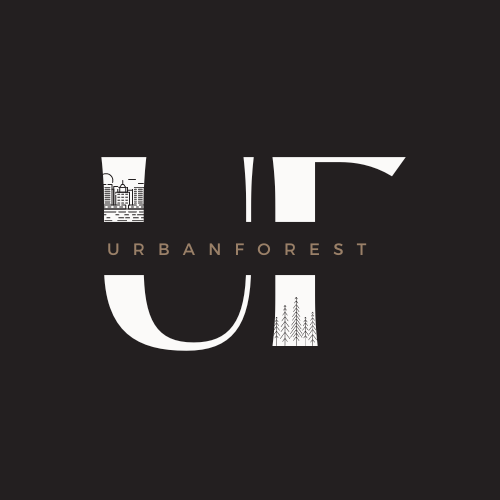Introduction
Unless you’re living under a rock, you are aware of AI and its capabilities: image generation, personal writing, creative drafting, video generation, music generation, and an endless plethora of possibilities. As a photographer, writer, and a business/computer science major, this topic comes to my attention frequently: Will AI take over? Has it already taken over?
If you are active on social media, I am sure you have seen numerous clips/edits that at first glance you think are real, only to discover they were created with AI. Taking it a step further, I have found myself following accounts and liking images that I thought aligned with my line of work in landscape photography, only to find out the images were generated with AI. Recently, Meta has made it a requirement to label whether content was AI-generated. A little “made with AI” text will appear above such content. The challenge is that distinguishing between human and AI-created work is becoming increasingly difficult.
AI’s Current Limitations and Biases
A couple of years back, I had the privilege of listening to Harvard University Professor Mathias Risse discuss his book, “Political Theory of the Digital Age: Where Artificial Intelligence May Take Us.” At this time, image generation was still relatively new and not nearly as accessible as it is nowadays.
One thing that really stood out during this talk was his explanation of the biases prevalent in each chatbot. The example given was when researchers asked MidJourney (an AI image-generation Discord chatbot) to generate an image of a company CEO. As they continued to generate 4, 8, 12 images, the results were remarkably consistent. Can you guess? Indeed, a middle-aged white male appeared every time. This demonstrates how AI systems inherit and sometimes amplify existing societal biases.
The Question of AI Consciousness
A few years ago, when Chat GPT was first released, Elon Musk, who was a Co-owner of OpenAI, resigned from the board in 2018. I read something that stated that Elon Musk, whom everyone knows, has been skeptical of AI for years, didn’t want the chatbot (Chat GPT) to be released to the public. Whoever was in charge of Chat GPT (not giving names) stated that all consciousness should be created equal and released it to the public, causing them to not be on speaking terms. Now, please, please, please take this with a grain of salt because I could not confirm this information, and I probably just saw it on some Instagram post, which is why I told the story loosely.
I share this story, despite its uncertain veracity, because it raises fundamental questions about consciousness. How do we define it? Where do we draw lines? How do we define it? Going further, it raises questions about what is morally and ethically right, similar to debates surrounding CRISPR genetic editing (a topic for another discussion).
The Future of AI and Human Creativity
So will AI take over creatives and writers? The short answer is no, but I believe that it will and already has changed the creative landscape significantly.
How AI Currently Assists Creatives:
- Generating initial drafts or ideas
- Helping overcome writer’s block
- Handling repetitive content creation tasks
- Assisting with editing and refinement
What AI Currently Lacks:
- Authentic lived experiences to draw from
- Cultural nuance and deep contextual understanding
- Original aesthetic judgment and taste
- The ability to create truly novel artistic movements or paradigm shifts
A New Creative Paradigm
Instead of AI replacing human creators, we’re witnessing a shift where AI is becoming an essential tool in the creative process. This parallels how digital tools changed but didn’t replace traditional art, or how word processors transformed writing without replacing writers. Software like Lightroom, Photoshop, and Procreate enhanced rather than eliminated human creativity.
Many creatives are already incorporating AI into their workflows while maintaining their unique human perspectives and voices. The most successful creatives of the future will likely be those who learn to effectively collaborate with AI tools, using them to enhance their work while contributing the distinctly human elements that give creative work its depth and resonance.
Concerns for the Future
This evolution, while inevitable, does raise concerns. Those who don’t adopt AI tools may struggle to compete with those who do. This doesn’t mean hobbyists can’t still create without AI, but professional creatives may find themselves at a disadvantage if they resist these new tools entirely.
My more profound fear is that the art of creativity, beautifully described in Rick Rubin’s “The Creative Act,” will be diminished as humans are required to think for themselves less and less. When you no longer have to experience any sort of creative block and the next idea is just one prompt away, that temptation may overpower anyone’s will to suffer through periods of being uninspired—periods which often lead to creative breakthroughs that otherwise wouldn’t have been discovered.
Our younger generation is already using AI to write papers, complete homework, and create art projects. Many educators now encourage students to use AI for ideation and even to create images or videos for assignments. In their defense, AI is undeniably part of our future; like it or not, it’s here to stay. After all, as John Wooden wisely noted, “If we fail to adapt, we fail to move forward.”
The challenge ahead is not whether to use AI, but how to use it in ways that enhance rather than diminish what makes human creativity uniquely valuable.
